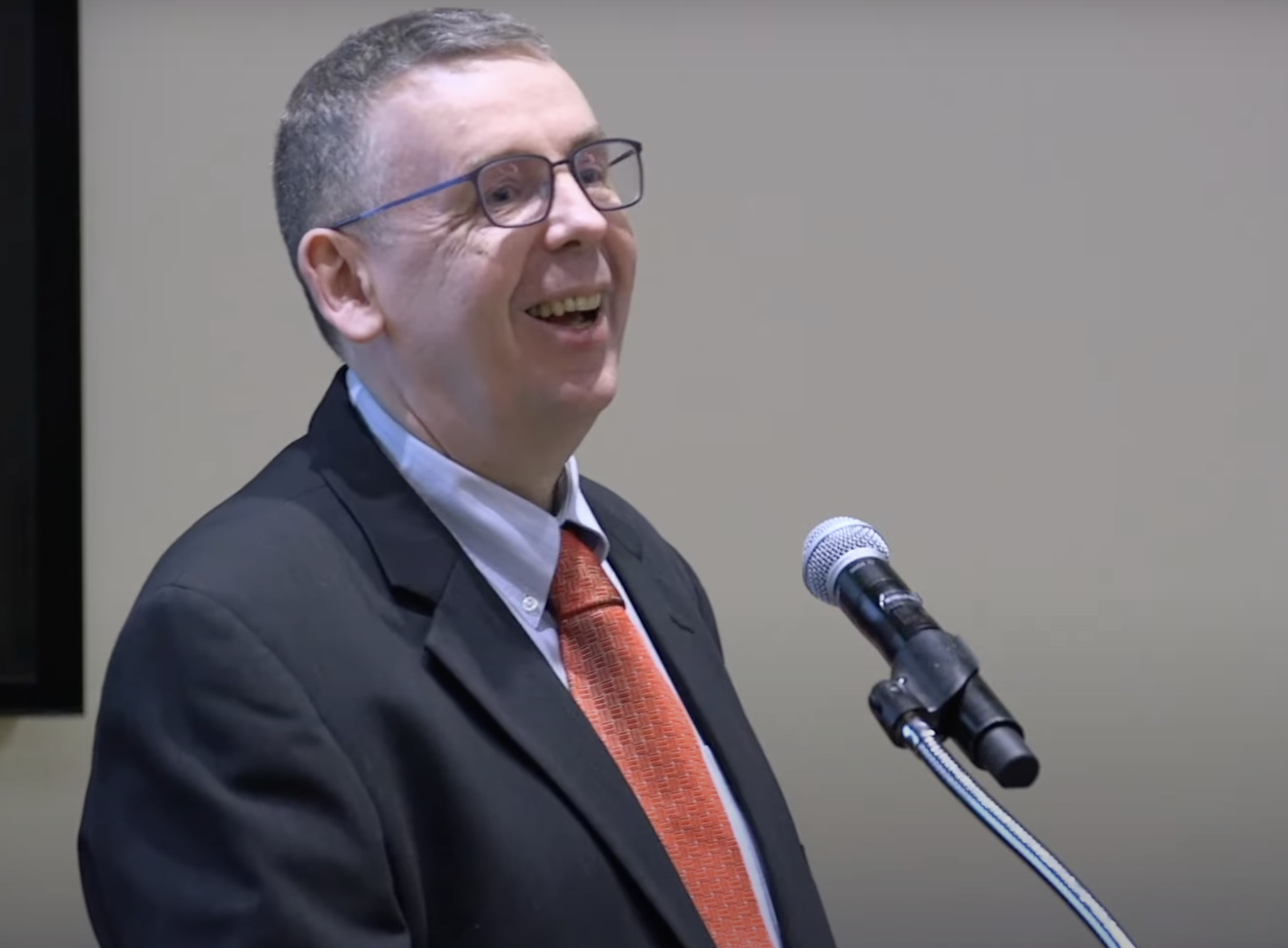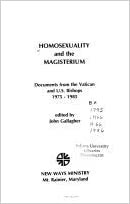The following is an excerpt from this year’s Candlemas Lecture, delivered by James Alison at Boston College on February 7, 2024. His full lecture is entitled, “Catholicity, Sacrifice and Shame: Subverting Polarization in Our Contemporary Ecclesial and Political Cultures.” This excerpt is printed with permission from the author. It has been edited for style, clarity and length.
Much of modern Christianity, whether in its Protestant or Catholic variants, is severely tempted by a false placement of sacrifice within the basic understanding of the faith. For instance, here is a very widely shared account of why Jesus died.
God was extremely and justifiably angry at humans for having sinned. Adam had, in some degree, seriously trashed the goodness of everything that God had created. And humans had no way out of this themselves, since what could we possibly offer to God to offset the infinite offense of our actions?
God, in whom there is no wrath or anger or violence, chooses to break through all our human violence, rivalry and need for vengeance.
So, after a long period of time, God chose a people, Israel and his sons, and eventually gave them the law so that they would learn God’s holiness. Then God’s Son offered to come down to earth and pay the full price of being sacrificed to God by humans. Because he was God, the value of this sacrifice was infinite. And because it was human, it was an acceptable payment in the right human currency.
The result of this was God agreeing to let off punishment all those who agreed to be covered by the blood of his Son. They are now insiders within the peaceful eye of a hurricane that is still seriously violent to all those outside it. Those on the inside have received the benefit of a bloody sacrifice. And being good now means staying on the inside of this group, to which belonging depends on signing up to the terms of payment.
And the terms of payment are that Jesus died to pay for such and such sins, which are described in a book treated as a source of law. This now becomes the “sacred terms of reference” that describes reality. Anyone suggesting that this or that thing isn’t really sinful is allowing a different source of truthfulness than the one described by the literal words of the book.
This both disses the value of the sacrifice by suggesting that the wrong price was paid, and threatens the joint belonging within the eye of the hurricane by suggesting that not all those outside the eye are necessarily evil.
Because God actually likes us and wants us to enjoy life with him, God occupied the space of death and shame so as to detoxify those realities for ever.
I want to suggest, educated for many years by the insight of René Girard, that if this is a true account, then Christianity is no more than just another human religion, a sacrificial cult based on being the biggest and best and truest of human sacrificial cults. Catholicity would be trying to get everybody on the inside of the eye of the hurricane, persuading people to “become good like us” while constantly denigrating those outsiders by comparison with whom “we are good.”
Christianity would be constantly fooling itself about sacrifice while clinging to the fake goodness that a sacrificial system brings about. It would demand the imposition of sacrificial laws both to keep alive a sense of the good, and also to feel holy while fighting those who oppose us. It seems to me that what Christianity offers is something which looks on the outside very much the same, but could not in fact be more different.
In this version, God, in whom there is no wrath or anger or violence, chooses to break through all our human violence, rivalry and need for vengeance (which we have projected onto God). God does this by coming into the midst of our humanity and its sacralized violence to make it possible for us to become children of God, rather than children of wrath. We have been addicted to a violent shortcut for becoming human by means of the omnipresent scapegoat mechanism.
Notice, this self-offering of God as an apparent “sacrifice” to us and our violence is conducted with something far fuller in mind than merely paying a price, “fulfilling” sacrifice or resolving a pre-defined problem. Jesus’s longing, the joy set before him, was the creative act of bringing the creator spirit into our midst as the life of God we could start to share. This means that the creative act looks like undoing from within not only this or that sacrifice, but the whole sacrificial structure by which we make ourselves good at the expense of each other.
The whole point of the Incarnation was to manifest God with us at our level, working out our salvation from within a human framework.
For me, this is the difference between any extrinsicist account of what Jesus was about and the account I’m trying to put before you. In the extrinsicist account, you can have Jesus not really liking humans, but heroically “loving” them by paying the awful price for their sins. But thereafter, he barks at them to repent, gives them Holy Spirit to strengthen their moral wills and constantly emotionally blackmails them whenever they sin again. (“I suffered so much to pay for your sins, and still you treat me like this!”)
In the account I am suggesting, something real happened that affected the whole of the human race, whether we realize it or not. Because God actually likes us and wants us to enjoy life with him, God occupied the space of death and shame so as to detoxify those realities for ever. If you like someone, you don’t only want to forgive their sins by an act of payment, you want to undo whatever place of shame they were stuck in so that they sinned in the first place.
In fact, merely saying you’ve forgiven someone’s sins without coming close to them and helping them deal with their shame is a very cruel and superior thing to do. And the whole point of the Incarnation was to manifest God with us at our level, working out our salvation from within a human framework and allowing us to become inside participants in God’s creative act.
But please notice the huge difference made to the notion of catholicity by the understanding of sacrifice which I have set out: the “undoing from within so as to open us out to life” model. It means that once the Holy Spirit has been given, as it has been, the access to catholicity is a rolling process of finding ourselves forgiven for all our attempts to build up new fake-sacred belongings as shortcuts to being and security.
It means that rather than “reality” being what our sacrificial group of the good determines, our access to reality is precisely opened up by letting go of our group’s contrastive goodness and being able to recognize the work of the Spirit in presenting the similarity of others.
This is why, in the Catholic faith, the love of the poor, the naked, the sick and the imprisoned is not something incidental that superior people do to show their compassion. It is, as Matthew’s Parable of the Sheep and Goats teaches, intrinsic to us being stretched into an ever-greater reality—confronting the precariousness of our goodness, being forgiven for our contempt of others and discovering our sameness with those at risk of shame.
So, the catholicity that emerges is one of people beginning to sit loose with their shame and futility, having been caught up in sacrificial structures of goodness over against others, and relax into their sameness with apparently different (and even repugnant) others. These are people who find their shame held tenderly by grace.
In the Catholic faith, the love of the poor, the naked, the sick and the imprisoned is not something incidental that superior people do to show their compassion.
This is not a gentle and easy process. Someone no longer run by the hidden shame at the root of their previous system of goodness is also someone utterly unmoved by the rewards of honor given to those who go along with the sacred game. For honor within a sacred system is the cover up of shame. This makes such people tremendously dangerous to the ever-threatened goodness of a sacrificial system.
So it is no wonder that catholicity is spread martyrly—by witnesses who, because they have discovered their shame held tenderly by God and are no longer run by it, are prepared to stand in their own or another group’s place of shame. They make visible the real power of the Spirit in giving their life away. Being God’s whistleblowers is the practical way that group frontiers are undone, and groups dependent on sacred opposition for their identity are able to recognize their similarity, and eventually, their oneness.




